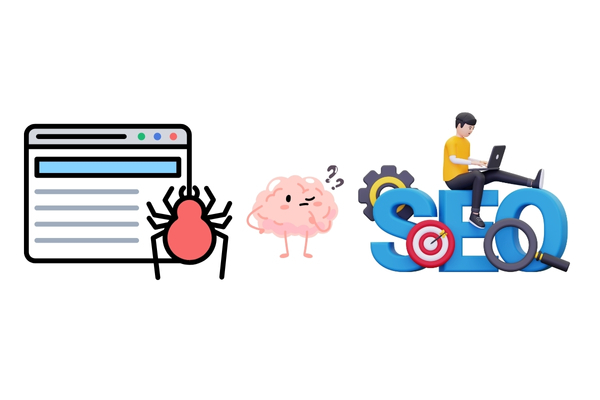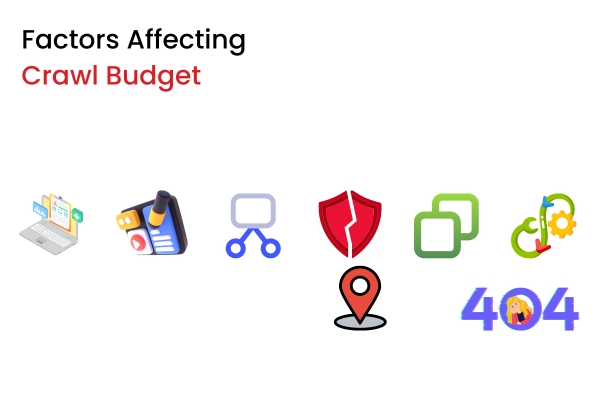If you are aware of the tech world, you have probably heard of the word crawling.
If you are not aware, do not worry. We will tell you!
It refers to a process in which search engines like Google look through websites to see any new updates, pages, and other information to get complete details.
That’s where this topic, Crawl Budget, has come from.
The Launch of Crawl Budget
The Google Crawl Budget was launched in 2017. On January 16, 2017, Google officially published a detailed post on the Google Webmaster Central Blog explaining the crawl budget, how it works, and its impact on websites.
This update by Google has been marked as an official acknowledgement, making it an essential topic for webmasters and SEO professionals.
Today, in this blog, we will know every detail about the crawl budget, what it is, why it is essential, how to optimize it and much more. Let us begin with the introduction to the crawl budget.
What is Crawl Budget?
In literal meaning, crawl refers to discover, and budget relates to the numbers. Therefore, Crawl Budget refers to the number of pages or URLs that search engines like Google will crawl or find within a time frame.
Search engines have finite resources, so they need to decide how to distribute them among millions of websites. That is why they have to balance the time or resources required to crawl according to the value of your website.
If your website is valuable, Google will allocate more resources to crawl it, ensuring that more of its pages are indexed. And for the rest of the invaluable sites, it will be vice versa.
According to Google, the crawl budget majority depends upon two factors:
Crawl Rate Limit: This is the number of requests per second a crawler makes to your website. The crawl rate can fluctuate and go up and down depending upon various factors such as:
- Crawl Health- This means that the health of your website is directly linked to crawling speed. Fast-responding sites are good for a better crawling rate.
- Limit Set in Google Search Console- It is possible that the website owners can lower the rate of crawling by changing the settings in the console. But, there is no option to increase it.
Crawl Demand: However, if there is no demand for indexing, the bots can crawl the websites. It majorly depends upon the two factors:
- Popularity- URLs that are trending and are popular on the internet can be crawled more and faster than others.
- Staleness- Our systems make an effort to keep URLs in the index from going stale.
However, other factors impact the crawl ability of your website, and we will discuss them later. Before that, let us know when this Google Crawl Budget launched.
Why is Crawl Budget Important for SEO?

As we know, Google crawls the website first and then indexes the pages. Therefore, it is clear that the visibility of your website directly depends upon Google crawling. Here are some reasons why a crawl budget in SEO plays a major role:
To maximize the indexing of pages
Google uses limited resources to crawl each website, which means that it is essential for you to get the important pages indexed to improve your rankings. By optimizing your crawl budget, you ensure that search engines prioritize and index all your high-value pages, improving their chances of appearing in Google search results.
To improve the ranking of the pages
When you regularly update content on your website, it becomes important to inform search engines about its existence. That is why a crawl budget is necessary to update Google about the new pages and get them indexed fast.
To allocate important resources
By guiding search engines to prioritize crawling your most important pages, you ensure that these pages are more likely to be indexed & ranked.
Thus, the crawl budget plays an important role in ultimately improving performance and visibility. But the question arises here: If Google can crawl the websites, then who needs to get worried?
Here are some situations under which a crawl budget is specifically essential:
- If you have a larger website, it is essential to inform Google about crawling, as it might miss the important pages that need to be crawled.
- If you constantly update your website or add new pages, it might affect your visibility due to non-crawlability and prevent it from indexing.
Factors Affecting Crawl Budget

As we discussed earlier, some factors affect the crawl budget, such as crawl demand and crawl rate. Other factors include site structure, sitemaps, duplicate content, website health, etc. Let us discuss them in detail:
Structure of the Site
You must have a proper site structure in order to make your website easy to crawl. If your website has an undefined structure, it will cause trouble for Google in crawling your website efficiently. This will lead to crawling your important pages and prevent them from indexing on the server.
Soft Error Pages
Errors like “Page Not Found” could impact the crawl budget. These pages could be mistakenly indexed by the search engine, leading to a poor user experience. Hence, the overall crawl budget is wasted on non-valuable pages.
Duplicate Content
If you have duplicate pages on your website, crawlers will waste their budget or resources crawling such pages. Thus, to avoid wastage, it is advised not to do duplication on your website as it will help crawlers prevent indexing similar pages.
Faceted Navigation
An infinite number of URLs are generated using faceted navigation. This may result in an overabundance of repetitive URLs, which would force search engines to spend more of their crawl budget on duplicate or similar material rather than original, worthwhile pages.
Hacked Pages
Sometimes, some of your pages may get hacked. This may bring malicious content to your website. Search engines can detect these changes and reduce the crawl rate to prevent the spreading of harmful content. This, in turn, leads to a low crawling rate and low indexing of the website.
XML Sitemaps
An updated and accurate XML sitemap helps crawlers understand your website’s structure and find new or updated content. Always add a proper XML Sitemap to your website.
Content Quality
If your website has low-quality content and is spammed or copied from others, this can negatively affect the crawl rate. As search engines give priority to high-quality content, they may miss important pages that need to be indexed in lieu of this low-quality content.
Your Website’s Crawl Health
The capacity of Google to crawl your website directly depends on how fast your website responds to Google’s request to crawl your website.
If your website is efficient and responds quickly, it will help Google crawl much faster and more. However, if you have a slow website, it will slow down the crawling process, and fewer pages will be crawled and indexed.
Therefore, it is advised to check your website’s health and fix the errors that are making it worse.
How to Optimize Crawl Budget?
Knowing about the importance of a Google crawl budget, you must now be aware that it is important to optimize it. Here are some tips for crawl budget optimization:
Improving Your Website Speed
Improving your website’s speed is the first essential step in increasing crawl efficiency. Faster sites are easier to crawl, so make sure that your website is faster.
You can improve your website’s speed by considering the following things:
- Ensure that you do not have images of much larger sizes. Continuously optimize the images by compressing them through an image compressor. This will help reduce the size of the photos, hence increasing the website’s loading speed.
- Use a content delivery network (CDN)
- You should remove unnecessary codes from your website. Minify CSS & JavaScript files to enhance website speed.
Use Robots.txt and Noindex Tags
Block low-value or irrelevant pages using robots.txt and no-index tags to prevent crawlers from wasting budget on them.
Update XML Sitemaps
Regularly update your XML sitemap to reflect changes in your site’s structure and content.
Fixing Crawl Errors
You should regularly check Google Search Console for crawl errors & fix them promptly to ensure smooth crawling. This will help to complete the crawling process as early as possible.
Removing the Duplicate Pages
Avoid using the same pages multiple times with duplicate URLs. Use the canonical tags to indicate the original version of a page to avoid content duplication.
Always optimize the URL structure.
To make it easy for Google to crawl your website, always ensure that you have a properly optimized URL. Make it short, descriptive, and accessible from unnecessary parameters.
Start Monitoring Your Crawl Budget Now!
Regularly monitoring and analyzing your website will help bots crawl it easily. Use tools like Google Search Console to get valuable insights. Also, pay attention to crawl stats and errors and review the index coverage report to see which pages are indexed and which are not.
Or, if you want professional services regarding website creation, monitoring, analyzing, search engine optimization and other important aspects of digital marketing, you can connect with Xrossway Solutions.
Key Questions
Is crawling a ranking factor?
No, crawling is not a ranking factor, but your website needs crawling to be indexed on the search engine. Whenever Google ranks some websites, it sees a lot of factors to rank the results.
How can I check my crawl budget?
You can monitor the crawl budget and related metrics using tools like Google Search Console. Look for crawl stats and errors to understand how effectively your budget is being utilized.
Do URLs that I block using robots.txt have any impact on my crawl budget?
No, the crawl budget is unaffected by blocked URLs.